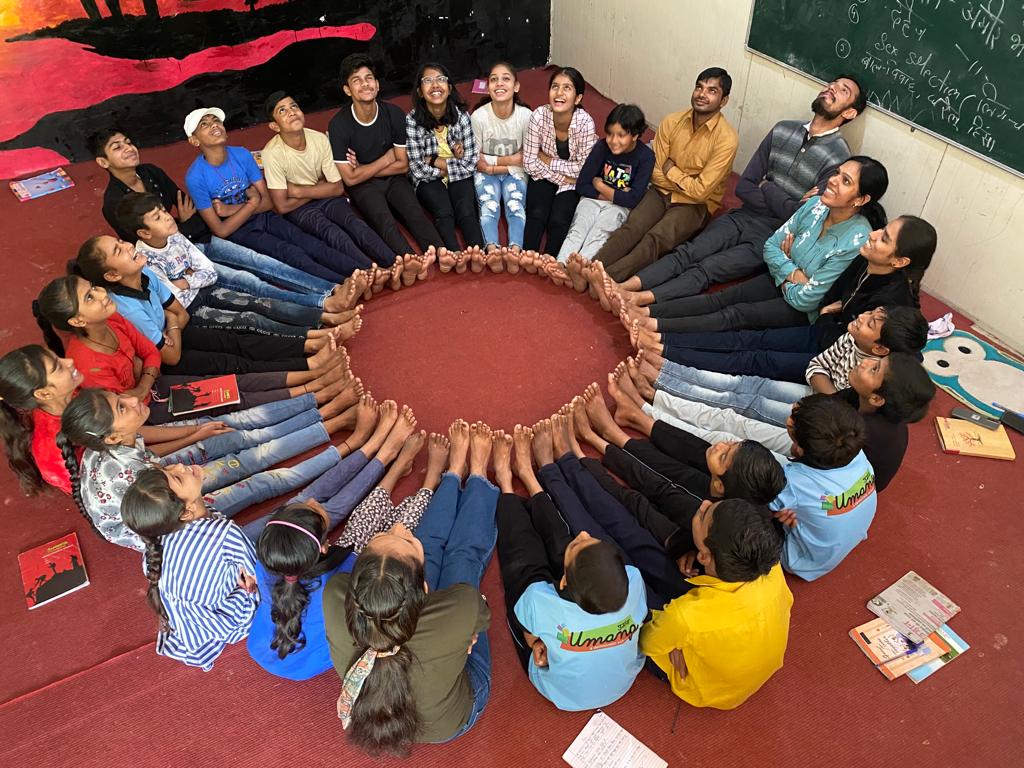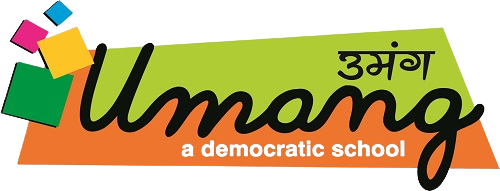Philosophy
Learn more about Philosophy – vision-mission.
Umang’s mission is to provide a student-centred learning environment that brings out the full potential of students to critically think and relate with their social realities through a democratic value system and creative pedagogy. To do this, we abide by the following values.
Student voice
To inculcate democratic values, Umang has a very active student council that engages in decision making about all aspects of the school – from the kind of evaluation they deem fit for various subjects, to how the garden at school should be maintained.

Equality
Students and teachers are treated alike, without any hierarchy – teachers do not scold, or punish students in any way – they practise a cooperative way of learning.

Inclusivity and Equity
No student is a weak student or a failure – we recognise that each child is unique, has their own pace and preferred means of learning. There is no reward, punishment, or competition associated with learning.

Collectivism and Cooperation
Students are not divided into grade levels based on their age or aptitude, they are divided into study groups based on their pace of learning, and teachers help each student find the way of learning that works best for them instead of imposing just one.

Dignity
Students learn self-reliance by collectively distributing the responsibility of cleaning classrooms, bathrooms, washing dishes, and such aspects of upkeep of the school – they truly own the space and learn to value freedom and responsibility.

Decentralised power
Even though Disha manages Umang, they do not hold all or even majority of the decision making power – all decisions that directly impact students or staff are discussed within the School Management Committee which includes democratically elected representatives of parents, student council, school staff, and the managing trust members).

Critical thinking
Students are encouraged to ask questions, understand the ‘why’ and ‘how’ behind what they learn. Learning goes beyond the textbooks as students create art, read novels, perform theatrical plays as an integral part of their schooling – we firmly believe in holistic learning.

Scientific temperament
The curriculum is designed to integrate critical thinking about the world and environment around the students by connecting ideas to real life scenarios. Students engage in field visits and science and social science experiments in their own communities.

